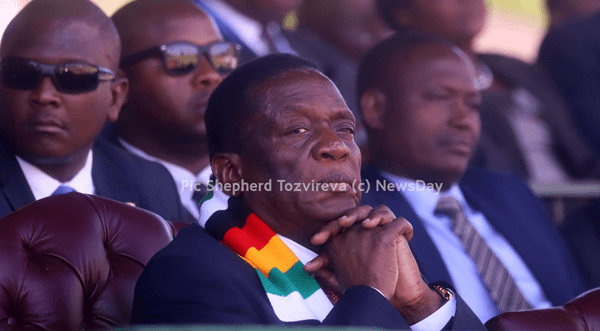
AT the time of going to print last night, indications were that United States’ Democratic party candidate John Biden would edge his Republican counterpart and incumbent President Donald Trump in the highly-charged presidential poll.
While the election outcome could be more significant to the American citizens, it will somehow have a strong bearing for a tiny southern African country called Zimbabwe given the frosty relations the two countries have had over the past two decades.
Most Zimbabweans were obviously keenly following the elections with the hope that a Biden win would see the US soften its stance on Zimbabwe and possibly lift the sanctions imposed on Harare.
However, that hope could be far-fetched since Biden was one of the four senators who sponsored the Zimbabwe Democracy and Economic Recovery Act (Zidera), a targeted sanctions law that was enacted in 2001.
It will be worth noting that even the administration of former President Barack Obama, another Democrat, issued a number of executive orders between 2008 and 2016 to perpetuate Zidera and even toughen the law.
Under the circumstances, it would be naïve for Zimbabwe to expect a change of stance under the new leader.
This is because Zidera demands that the Zanu PF regime guarantees free and fair elections, mineral revenue transparency, commits to economic recovery, and respects the rule of law. All of these benchmarks are yet to be fully met under the Emmerson Mnangagwa administration.
Mnangagwa blew the golden opportunity to win the US to his side and effectively lobby for thawing of relations when he toppled his former boss Robert Mugabe in November 2017 after he failed to implement the anticipated reforms.
- Chamisa under fire over US$120K donation
- Mavhunga puts DeMbare into Chibuku quarterfinals
- Pension funds bet on Cabora Bassa oilfields
- Councils defy govt fire tender directive
Keep Reading
Another factor which militates against Mnangagwa’s bid for the lifting of sanctions is that the corporate wing of Biden’s Democratic party is a powerful amplifier of opposition and civil society voices in Zimbabwe.
With this in mind, the Mnangagwa administration should seriously introspect and move towards addressing the gray areas highlighted under Zidera to improve relations with the US. Unless that happens, it’s most likely that under Biden, the bipartisan agreement to financially isolate Zimbabwe will remain in force.
To please his supporters, Biden might even be tempted to reset the US foreign policy and champion an imperial global order, which uses human rights speak to coerce the conformity of the global south by threatening economic consequences for countries that dare challenge the orthodoxy of wealth retention by monopoly white capital.
The onus is now on Mnangagwa to reform on his own or be reformed by more punitive sanctions under Biden’s administration. Sanctions hurt, Zimbabweans deserve better.











